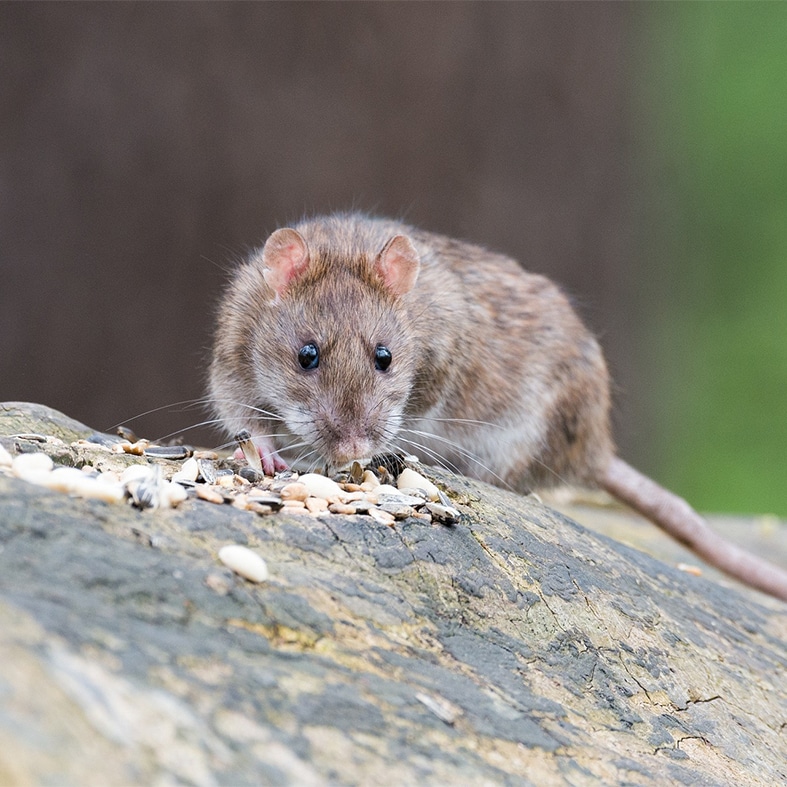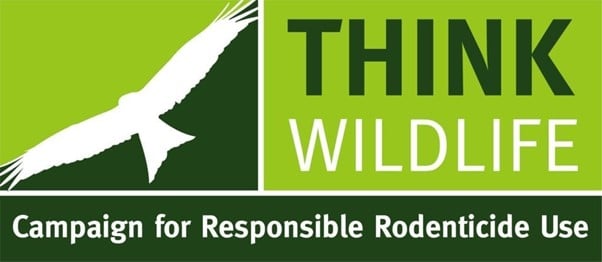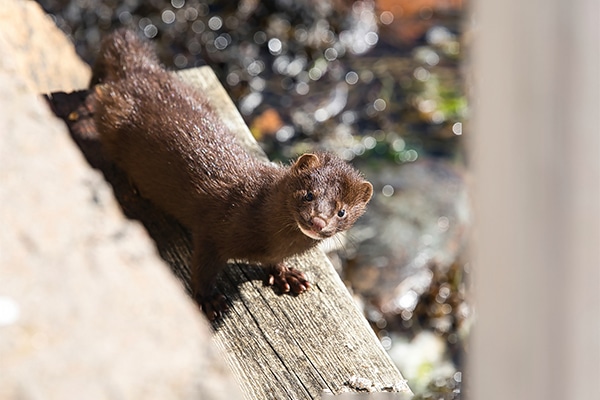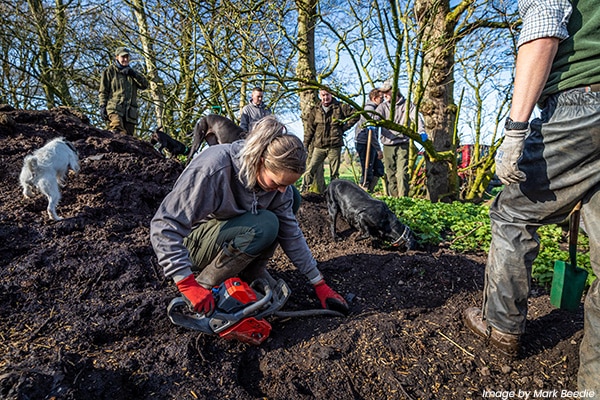
How to make a ladder trap
A strategically set ladder trap will catch birds when other methods of control either won’t work or are impractical.
Get information on the legal shooting season for mammals and birds in the UK.
Apply for funding for your project or make a donation today
Comprehensive information and advice from our specialist firearms team.
Everything you need to know about shotgun, rifle and airgun ammunition.
Find our up-to-date information, advice and links to government resources.
Everything you need to know on firearms law and licensing.
All the latest news and advice on general licences and how they affect you.


Home » Pest and Predator Control » Rodenticides
Rats predate both wildlife and livestock and often carry diseases, which can harm people and animals. They can cause damage to buildings and equipment and contaminate foodstuffs.
To control them is an ongoing battle that uses a wide variety of legal methods and rodenticides.
When dealing with a rat problem, it is important to consider all the available control methods, such as good hygiene practices, physical barriers, traps, gassing, use of dogs and shooting, before using rodenticides.
However, depending upon the circumstance and specific situation not all of these will be suitable and at times rodenticides are the only effective way to control a rat problem.
Rodenticides are not without their issues though, such as the risk of secondary poisoning to other species, so they must be used correctly. Always follow the instructions and requirements on any product labels.
From 1 January 2026, anyone purchasing or using professional rodenticide products must have completed a Campaign for Responsible Rodenticide Use (CRRU) UK-approved training course within the last five years. Alternatively, older certification will be valid if supported by membership of a CRRU UK-recognised Continuing Professional Development (CPD) scheme. Read more here.
Important changes to the use second generation anticoagulant rodenticides (SGARS) from 1st January 2025:
The changes, instigated voluntarily by the Campaign for Responsible Rodenticide Use (CRRU) UK, mean that from 1 January 2025 it became illegal to use any second generation anticoagulant rodenticides (SGARS) in outdoor locations unless connected to a building. Read more here.
The rodenticide industry recognises the need to ensure their products are used correctly and in ways that minimise the exposure of wildlife and other non-target animals.
Advice on how to use rodenticides and control rats using other methods is available in the Campaign for Responsible Rodenticide Use (CRRU) code of best practice. There is specific advice for different sectors, including game management.
Advice on how to use rodenticides and control rats using other methods is available in the CRRU Rat Control and Game Management guide.
Because of the issues and risks associated with the use of rodenticides, in 2016 a stewardship regime was developed. This means that anyone buying or using professional-only rodenticides needs to have completed certified training prior to purchasing and using professional-grade rodenticides.
There are several approved certificates relevant to each of the different industry sectors which will allow the purchase of these professional rodenticides.

Anticoagulants revolutionised rodent control in the 1950s, but some rodents soon became resistant to them. Second-generation anticoagulants were then introduced but rats and house mice resistant to some of these compounds are now widespread in the UK.
This spread of resistance can only be tackled if there is an accurate picture and the CRRU is requesting assistance to identify these areas.
They are asking those involved with rat control, such as gamekeepers, farmers and pest controllers, to use the free service in order to help identify the problem areas. In return, participants will receive a free indication of their local resistance to rodenticides status from the CRRU which will ultimately help them to use the correct and most effective methods and products in their rodent control.

A strategically set ladder trap will catch birds when other methods of control either won’t work or are impractical.

Mink have had a devastating impact on our native fauna through predation on vulnerable species of birds, fish and mammals such as the water vole.

We run a wide range of courses, covering all areas of shooting, including an introduction to woodpigeon shooting.